Annual Monitoring Review 2023
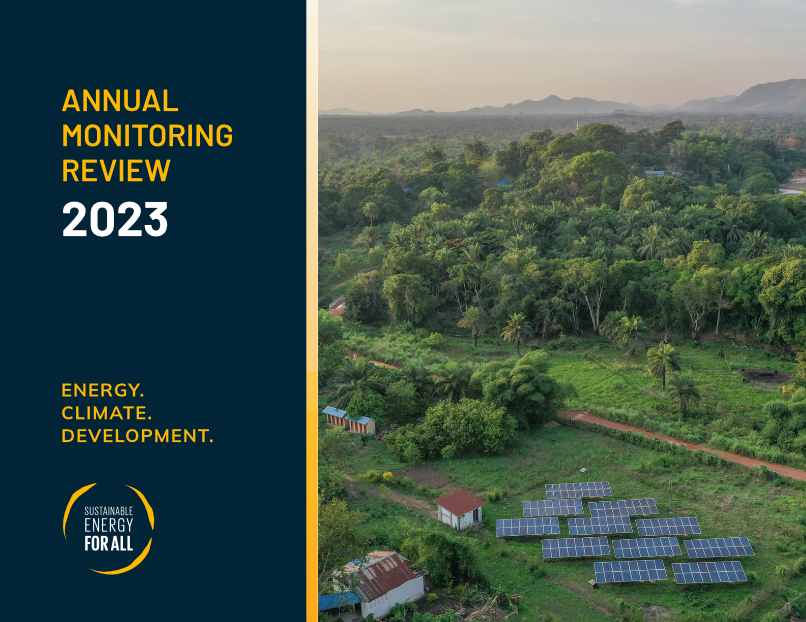
In the final year of our 2021-2023 Business Plan, SEforALL saw significant results due to all the groundwork laid during the first years of this business cycle. Unwavering dedication to our strategic goals over the last three years, with refinements to our approach based on learnings, has been noted as a key ingredient to some of the most significant results achieved to date. In 2023, our work continued to focus on four key thematic areas: Energy Diplomacy and Advocacy, Energy Access and Closing the Gap, Energy Transitions and Climate, and the Intersection of SDG7 with other SDGs. In parallel to successful progress made, learnings from the last three years of implementation have strategically guided our 2024-2026 Strategic Plan.
Executive Summary
Highlights from the entire 2021-2023 Business Plan appear here in the Executive Summary, along with final key performance indicator (KPI) results at cross-organization and programme levels, as these high-level achievements are a result of all the hard work over the last three years.
High-Level Results
All of our programmatic and thematic level achievements are aggregated further towards our cross-organizational KPIs, which have been overachieved across the entire 2021-2023 Business Plan targets.
Thematic Area Overview
Advocacy and Diplomacy
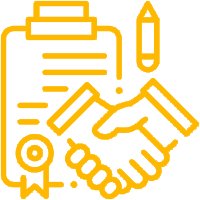
Energy Compacts
• Electricity and clean cooking access has been significantly enhanced through the Energy Compacts proponents, resulting in 129 million people gaining new and improved electricity connections and 22 million people gaining enhanced access to clean cooking to date.
• The No New Coal Energy Compact was launched during the High-level Dialogue on Energy in 2022, with commitments secured to date from Chile, Denmark, France, Germany, Montenegro, Panama, Sri Lanka and the UK to not build any new coal power projects.
• At the SDG Summit in 2023, the Energy Compacts were announced as one of twelve of the UN development system’s High Impact Initiatives; the 24/7 Carbon Free Energy Compact and the Gender and Energy Compact were highlighted at the SDG Summit, underscoring SEforALL’s role in driving substantial global actions toward sustainable energy systems and bridging energy access gaps.
• SEforALL is co-chair of the Gender and Energy Compact, along with Energia, GWNET and UNIDO, demonstrating our dedication to gender equality and women’s empowerment in the energy sector.
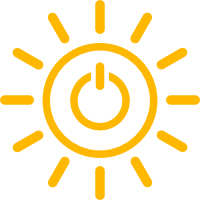
SDG7 Pavilion at COP
At COP26, 27 and 28, we hosted the SDG7 Pavilion, and our support to the UAE COP28 Presidency and overall engagement allowed us to significantly influence the global climate agenda:
• Seven critical changes were integrated into the global stocktake decision text to drive future climate action as a result of our direct country support at COP.
• Financial commitments totalling USD 3.5 billion were announced with our backing to support initiatives under a just and equitable energy transition, ensuring resources are mobilized to finance the energy access gap in the Global South.
• The SEforALL-backed Mission Efficiency Pledge supported momentum to the COP28 Global Pledge on Doubling Energy Efficiency, which combined to inspire over 130 endorsements from the private sector and governments. This initiative builds on the momentum from the India G20 presidency effort, driving specific commitments towards energy efficiency.
• Our advocacy in sustainable cooling supported the success of the Global Cooling Pledge, signed by over 60 countries, including major players like Brazil and the US. This collective commitment emphasizes sustainable cooling solutions.
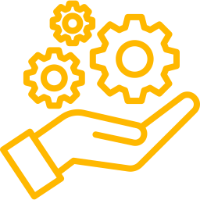
Advocacy and Advisory
• Through support provided to India's G20 Presidency we helped secure the doubling of energy efficiency in the G20 Leaders Outcome document: “Strategic Plan for Advancing Energy Efficiency Across Demand Sectors by 2030.
• The inclusion of 10 Southeast Asian nations in the Renewable Energy Manufacturing Initiative's regional industry development plan marked another milestone in regional cooperation.

Advocacy and Advisory
• Through support provided to India's G20 Presidency we helped secure the doubling of energy efficiency in the G20 Leaders Outcome document: “Strategic Plan for Advancing Energy Efficiency Across Demand Sectors by 2030.
• The inclusion of 10 Southeast Asian nations in the Renewable Energy Manufacturing Initiative's regional industry development plan marked another milestone in regional cooperation.
Energy Access and Closing the Gap

Results-Based Financing
• Raised over USD 40 million in overall funding to bridge the gap for new mini-grid connections and high-capacity stand-alone solar systems that support Benin, the Democratic Republic of Congo (DRC), Madagascar, Nigeria and Sierra Leone through the Universal Energy Facility (UEF), a results-based financing (RBF) and multi-donor platform managed by SEforALL.
• By the end of 2023, the UEF had achieved more than 4,900 connections (households, businesses, healthcare and educational facilities), impacting ~19,000 people and disbursing USD 5.3 million, with a funded pipeline of over 25,000 connections.
• In 2023, the UEF expanded its mini-grid programme, signing new grant agreements with seven companies in Benin, the Democratic Republic of Congo (DRC), Madagascar and Sierra Leone. It also signed its first grant agreements with 10 companies in Nigeria under its Stand-alone Solar for Productive Use (SSPU) programme. Overall, the UEF saw a +500 percent Year on Year (YoY) growth in new connections and 1,100 percent YoY growth in disbursement rate.
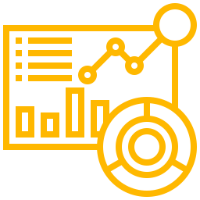
Integrated Energy Access Plans
• Developed national Integrated Energy Access Plans (IEPs) to help mobilize resources effectively and efficiently to support electrification and clean cooking access goals in Madagascar, Malawi, Nigeria and Rwanda. These plans have translated into practical impact:
▫︎ Countries have integrated IEP principles into their strategies; this is seen in Madagascar's updated Energy Policy, Malawi's National eCooking Roadmap and Rwanda's National Integrated Clean Cooking Plan.
▫︎ Development partners have utilized data and planning to drive progress in energy access:
▫︎ The OPEC Fund for International Development is leveraging the Madagascar IEP to secure and implement a USD 36 million clean cooking programme.
▫︎ Malawi’s IEP has been leveraged by GIZ to solarize 93 health facilities; EnDev has designed Demand-Side Subsidies (DSS) pilots around solar home systems and improved cookstoves based on primary data collected in the IEP; the Global Energy Alliance for People and Planet (GEAPP) leveraged the IEP data while developing the Malawi Distribution Masterplan.
▫︎ Nigeria’s IEP has directly contributed to the World Bank’s Nigeria Distributed Energy Access through Renewable Energy Scale-up (DARES) programme design, a USD 750 million+ technical assistance programme focused on distributed renewables.
• With partners, mobilized USD 100 million of investments in clean cooking for the Democratic Republic of Congo (DRC), Madagascar, Malawi and Rwanda.
Energy Transitions and Climate
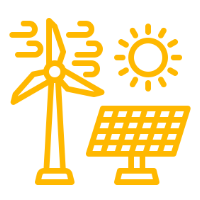
Energy Transition and Investment Plans
• In partnership with each of four countries, developed four Energy Transition and Investment Plans (ETIPs) for Barbados, Ghana, Kenya and Nigeria, providing a data-driven pathway for these countries to build energy systems that support economic and social development and achieve net-zero emissions, with the Barbados ETIP to be launched in 2024, and similar efforts ongoing in partnership with Sierra Leone.
• Helped mobilize USD 6.09 billion of investments, directly and indirectly, to date towards the implementation of Nigeria’s ETP.

Carbon Markets and Renewables
• Developing national Carbon Market Activation Plans (CMAPs) through the Africa Carbon Markets Initiative (ACMI), with the first CMAP launched in Kenya in 2023, and similar efforts underway for Ghana, Nigeria and Rwanda.
• Launched the Renewable Energy Manufacturing Initiative (REMI) with a regional focus on Africa and Southeast Asia, supporting countries such as Ghana, Indonesia, Kenya, Nigeria and Rwanda through commissioning assessments and designing roadmaps to explore the potential of renewable energy manufacturing in these regions.

Sustainable Cooling
• Supported partners to mobilize more than USD 300 million for cooling investment, which further leveraged up to an estimated USD 1.4 billion.
• SEforALL has significantly advanced cooling solutions critical to national development. In Cambodia and Kenya, our initiatives have improved National Cooling Action Plans (NCAPs) and enhanced policy and regulatory frameworks. In Madagascar, SEforALL incorporated agricultural and vaccine cold chains into the Integrated Energy Access Plan, underscoring the critical role of cooling in healthcare and agriculture.
Intersection with other SDGs
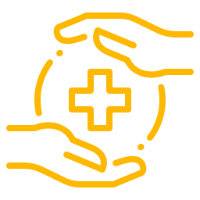
Powering Healthcare
• SEforALL developed Powering Healthcare Assessments and Roadmaps in several countries (Madagascar, Nigeria, Rwanda, and Sierra Leone) to facilitate the electrification of health facilities. Each roadmap is leading to new in-country developments, ranging from implementation (Sierra Leone) to integration in RBF tools (Rwanda) to a ‘call to action’ for further investments in health infrastructure (Nigeria), with Madagascar’s roadmap set to launch in 2024.
• Powered six hospitals in Sierra Leone with solar and battery storage, improving health services across the country for over 8.5 million people.
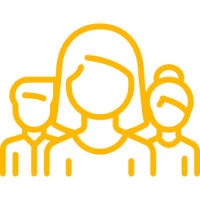
Women and Youth at the Forefront
• SEforALL trained 330 young women and 54 young men in the sustainable energy sector from the Global South who benefitted from career development.
Annual Monitoring Review 2023 - Table of Contents
Related content
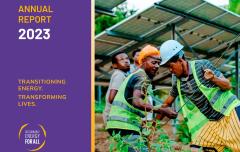
Annual report
30 Aug 2024
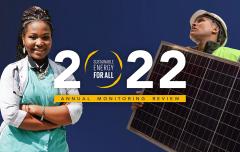
Monitoring and evaluation review
08 Aug 2023
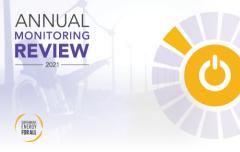
Monitoring and evaluation review
28 Jul 2022
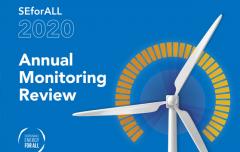
Monitoring and evaluation review
22 Jun 2021
